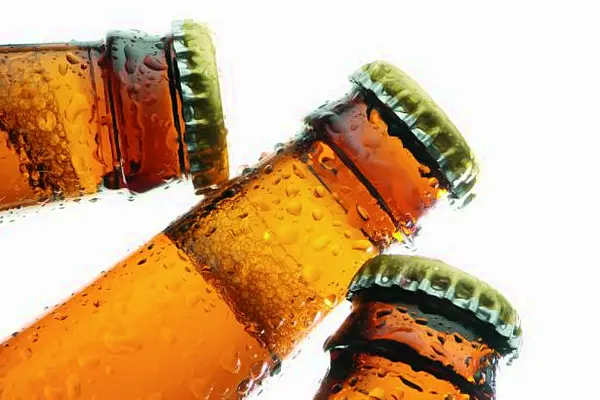Men and women should drink no more than six pints of beer or standard glasses o fwine a week, according to new UK government guidelines that warn that any level of alcohol consumption raises the risk of cancer.
The new guidance, published in London on Friday, lowers the recommended maximum intake for men to 14 UK units of alcohol a week, the same as for women, from 21 units. A pint of beer with a four per cent alcohol content or a medium-sized 175-millilitre glass of wine contains 2.3 units. People of both sexes are urged to have several alcohol-free days a week.
The new advice follows a review of scientific evidence since the previous guidelines were issued in 1995, the government said in an e-mailed statement. The full extent of the links between alcohol and cancer were not previously understood, and the new guidelines have been set at a level to keep the risk of mortality from cancers or other diseases low, it said.
“Drinking any level of alcohol regularly carries a health risk for anyone, but if men and women limit their intake to no more than 14 units a week it keeps the risk of illness like cancer and liver disease low,” the chief medical officer for England, Sally Davies, said in the statement. The guidelines aim to give the public “the latest and most up-to-date scientific information so that they can make informed decisions about their own drinking and the level of risk they are prepared to take,” she said.
The benefits of alcohol for heart health only apply for women aged 55 and older, with the greatest benefit seen when intake is limited to five units a week.
The government also urges drinkers not to concentrate alcohol consumption to “one of two heavy drinking sessions each week,” saying that increases the risk of death from long-term illnesses or injuries. Pregnant women are warned that it’s not safe to drink any alcohol at all.
Action for Consumer Choice, a lobby group that campaigns against restrictions on smoking an alcohol, said the new government advice appears devoid of common sense.
“The claim that there is no safe level of drinking flies in the face of the weight of studies showing that those who drink moderately have better or similar health outcomes to teetotallers,” Rob Lyons, the group’s campaigns manager, said in an e-mailed statement. The guidelines “seem designed to suggest that drinking alcohol in more than tiny quantities is abnormal and risky. The real danger is they will be used to justify more nanny state policies, from higher prices and alarmist health warnings to further restrictions on the sale of alcohol.”
News by Bloomberg, edited by Hospitality Ireland









